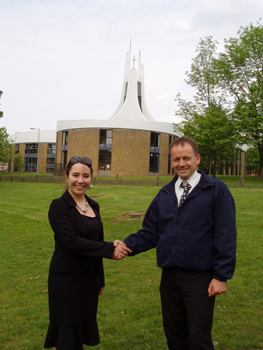University to Cut its Carbon Footprint

Lancaster University is set to cut its carbon footprint and reduce its energy bills by joining phase four of the Carbon Trust’s Higher Education Carbon Management (HECM) programme.
Lancaster University is one of eighteen universities from across England and Scotland to participate in the latest phase of the programme, which will see participants collectively cut their carbon footprints by 72,000 tonnes and energy costs by £8.1 million.
The Carbon Trust is now working with over half of the UK’s universities to identify and implement carbon saving opportunities. Success is achieved through a structured programme which includes software to analyse energy consumption and workshop support for staff and senior managers to improve their awareness of energy efficiency.
Through the first three phases of the HECM programme, the Carbon Trust has already worked with 50 universities, identifying annual savings of more than £22 million and 185,000 tonnes of carbon dioxide across all sites involved. Many of the new participants can expect to reduce their energy bills by up to 20 per cent.
Tom Cumberlege, Public Sector Manager at the Carbon Trust, said: “Universities and higher education institutes emit 3.2 million tonnes of carbon dioxide every year. The sector spends more than £200 million every year on energy and when you consider that around 2.5 per cent of the average university’s annual budget is spent on energy the financial and environmental incentives to cut carbon are clear.
“As well as generating cash savings which can be invested in valuable resources for staff and students, cutting carbon emissions can also boost a university’s environmental credentials which in turn may lead to an increase in applicant numbers.
“The Carbon Trust is looking forward to building on the success of the first three phases of our HECM programme by helping eighteen more universities cut their carbon footprint and take action on climate change.”
The HECM programme is designed to deliver improved energy management of academic, accommodation and leisure buildings and vehicle fleets. The programme is supported by a bespoke toolkit – a web-based manual that gives detailed guidance on the programme’s process and technical advice. It also facilitates the sharing of best practice between participants, enabling them to learn from each other’s experience, thereby optimising results.
Jonathan Mills, Environment & Sustainability Manager, Lancaster University, said: “Through working in close partnership with the Carbon Trust on its Higher Education Carbon Management programme, we will establish an energy strategy and identify a set of practical actions that will help us to save cash and carbon. We are looking forward to reducing our energy bills, cutting our carbon footprint, and therefore combating climate change.”